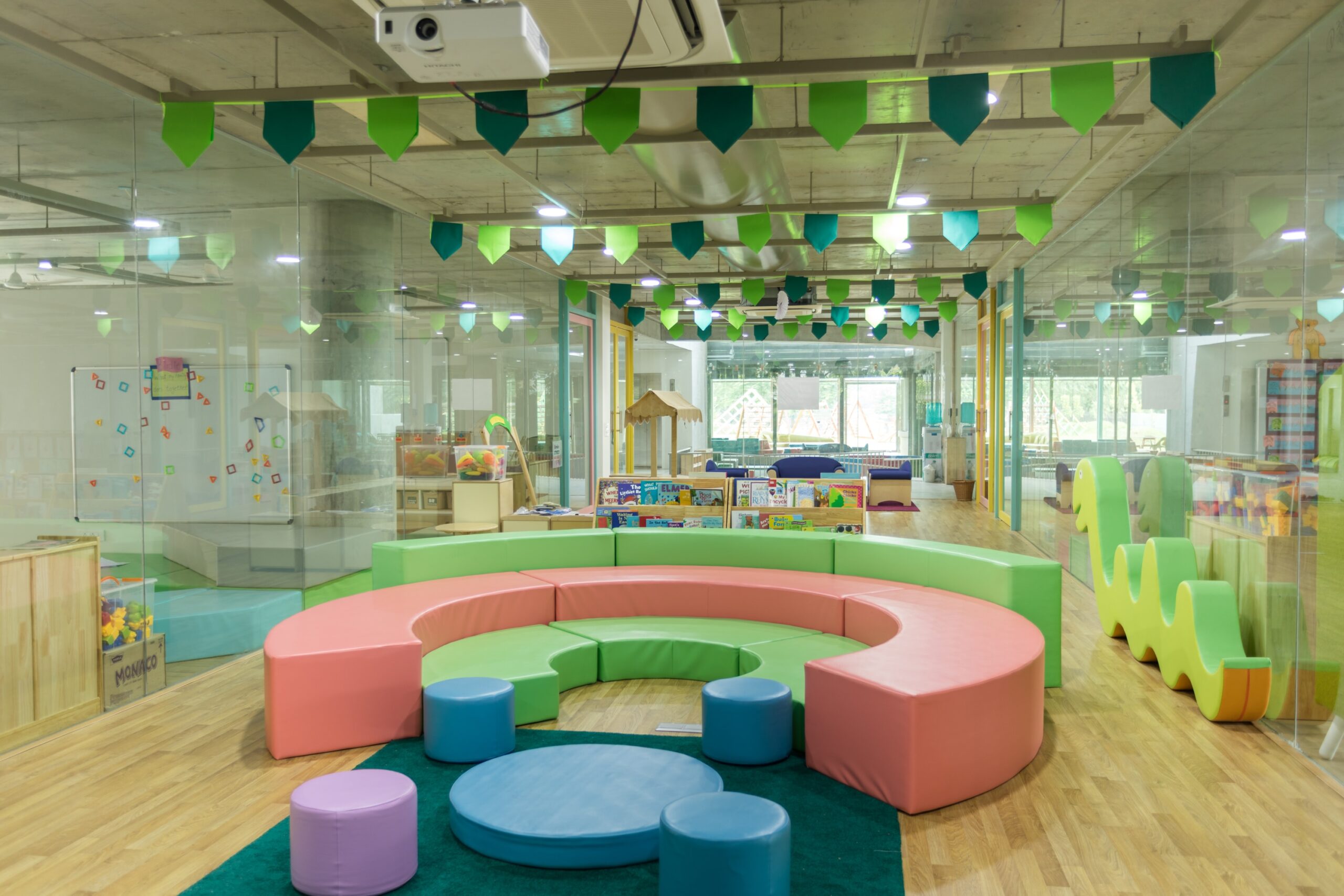
Are you having difficulty finding a daycare or preschool and affordability is not really the issue? Does every daycare or preschool seem to be the wrong fit? In this post, I will introduce you to a perspective that could help you find the best childcare solution for YOU.
Take A Quiz!
Does any of these apply to you? Answer “True” or “False”
- You keep finding providers who seemingly have everything you’re looking for, but they can’t accommodate the hours you need for care.
- The student-to-teacher ratios are always much too high for your comfort.

Take a quiz! Photo by Nguyen Dang Hoang Nhu on Unsplash - The providers seem nice enough but will not honor your feeding or naptime requests.
- Daycare/preschool daily schedules interfere with how you’d like your daytime and evening family to flow.
- Your infant/toddler/preschooler demonstrates high levels of intensity, more sensitivity to stimuli, irregular eating, and sleeping habits, and is slow to adapt to changes.
If you answered “True” to one or more of these questions, you might want to reconsider if group care is the best fit for you and your family.
Daycare and Preschool: Child Care for the Masses
I don’t know if group care is the best option for your child and family. However, I’d like to share some thoughts with you and invite you to think deeply about why group care might not be working out for you. Daycare and preschool are such a part of our culture that we tend to automatically think that such settings must work for everyone. Well here’s an insider secret: they don’t.

Daycares, childcare centers, preschools, and family child homes all have something in common: they are designed for “the masses”. This is why I keep referring to them as “group care”. Let me be clear, group care, is not a bad thing, per se. Group settings have to (to varying degrees) “institutionalize” in order to be effective at what they do. These childcare solutions must make sure that they are maximizing their ability to meet the needs of as many children and families as possible within a given set of parameters. They are not designed to accommodate an individual child, parent, or family preferences. Though they might, they usually cannot do so without adversely affecting many other families. Since all families pay the same rate per age, per child, group learning environments must offer the same options and restrictions to everyone.
Additionally, licensed group care settings not only have to optimize to meet group needs, but they are also under the watchful eye of state regulations and policies. The same is true for LEGALLY unlicensed care providers. These care providers must remain within certain prescribed boundaries to avoid jeopardizing the standing of their childcare business. In some cases, it can be as serious as avoiding a prison sentence! Your state considers your child to be so valuable that it has laws in place to keep them alive and safe in a group care setting. Providers are well aware of this. They run their environments in compliance with these laws and regulations. Many times they add additional safeguards within their own programs to make sure that they are doing the most for their daycare babies and families while also remaining compliant with state and local laws. These are things that most childcare providers don’t go into detail to explain because there is so much to know. Plus, many parents really only want to know the rate and the hours. These are typically the most critical priorities during the childcare search. Some privileged parents, can also sort childcare options based on programming, what their child will be doing during the day, and with whom. In either case, the inner workings don’t usually become a question until there is an issue.
Is Group Care Right for My Child?

So with these things in mind, the next question is: “Is group care the right fit for my child?” What no one tells us is that group care is for families and children who can make the shift to a more generalized and standardized approach to child care and safety. Essentially, families have to be OK with sharing or even giving up control of their child’s moment-by-moment experiences.
There are amazing benefits within this childcare model which is why families all over the world have chosen it since the 1800s. Like anything else, there are also drawbacks. The main one is that no business or service model can meet every need. Including daycare and preschool. Many times we think about this from a micro-perspective and we compare individual preschool options to one another. But sometimes the question is not, “Is this daycare or preschool” right for my child but rather, “Is group care, in general, right for my child?”
Am I Right For Group Care?
A second very important question to ask yourself might seem irrelevant, at first. In reality, it is probably more crucial than the previous one. Ask yourself: “Am I right for group care?” Since this is Childcare 411, I’m going to give you the inside scoop. Group care providers will tell you that most childcare arrangements fall apart because the parent and the provider are not on the same page about one or more of the following:
the provider are not on the same page about one or more of the following:
- Parent expectations that conflict with what the provider is able or willing to provide
- Lack of parental follow-through for helping the child adjust to the group care environment
- Parental non-compliance with rules, policies, payments, or procedures
No judgment here. I’ve been a working Mom with kids in daycare/preschool and I’ve been there. When you have a demanding job and little to no family support in the area, you tend to have big needs for your childcare provider. Although childcare providers should provide a detailed, clearly written handbook of their policies and expectations, this does not always happen. When it doesn’t, it can leave gray areas for parents. Gray areas don’t work well in business relationships (including child care). What to expect is not always clear when handbook rules don’t support parents’ real-life scenarios. Many times there’s room for interpretation that can leave parents feeling unsupported or in conflict with the provider.
At the end of the day, group care requires parents to subdue their preferences and submit to center rules or find a more suitable care environment. Here is what happened to me………..
Quick Story
When I sent my daughter to daycare/preschool at age 3, I was not ready for her to go. At the time, I worked from home and had times of great flexibility depending on what was happening at work. Such circumstances allowed me to work with little to no pressure while my children played close by. Consequently, my daughter’s preschool attendance started off “spotty”. Not only was it spotty, but I would drop her off and pick her up whenever I chose to. After all, I’m paying on time, I can use the service any way I choose, right?
Enter the daycare director. She casually asked if we could chat about my daughter’s attendance. She gently and kindly explained with empathy that my daughter’s late drop-off was interrupting the flow of the classroom and learning routines that were in place. Her irregular attendance made it harder for her to adjust to the structure of the classroom when she returned. I don’t remember exactly how she said it, but I do remember that she was not disrespectful, or judgmental, nor did she have “an attitude”. Her approach was one of partnership and made all the difference in my decision to continue with care at that preschool. At the end of the day, what was convenient for me, was not fair to my daughter, her teacher, or the other students. I would have never thought of any of this if the director had not met with me to address these issues. Did I like it? Honestly, NO. I was already stressed out and trying to find the right balance of family, work, and my own self-care. Letting her stay at home when work was slow for me, rather than rushing everyone out of the house in three different directions was not fun. We also had a puppy that wouldn’t stop barking (which kept me on edge) and my back would go out every other month. My round-trip run with traffic was about an hour. Why would I put myself through the extra stress when I didn’t have to? After considering all these challenges and the director’s requests I had to ask myself:
- Am I ready to have my child in a group setting?
- Am I ready to do what is necessary to make sure that she gets the most out of her preschool experience?
- Can I accept that my relationship with my childcare provider is not just transactional but also relational?
- Am I ready to accept that I have a part to play in my daughter’s preschool success as well as the overall environment?
I imagined what it would be like if every parent insisted on having their personal preferences executed at my daughter’s daycare. It would be pure chaos. In fact, her daycare would not have survived bowing to the preferences of 80 families. So I conformed. Not only that time but every time I was asked to despite the fact that I am naturally not fond of conformity. My willingness to work alongside of the childcare provider was a major inconvenience for me (at first). But my daughter thrived! It was well worth foregoing my preferences and my convenience to keep her in that very wonderful setting.


Exploring Other Care Options

Every story is different. Not everyone will have the same outcome as I did. Nor should everyone. I shared my story to give a real-life scenario of what it looks like to weigh the pros and cons of group care. I also have stories about times when I refused group care because it was not right for us in that season.
If for any reason you are unable to conform, comply, or make changes to your routines so that your child can fit into the system of a group care environment, that’s perfectly fine. Or if you are finding that group childcare providers are not willing or are unable to accommodate the special needs of your child, you have options.
There are many individualized care options available to you. Recognizing that group care is not it does not mean that it never will be. Perhaps, in a different season of family life, it will be perfect. Then again, you might decide for any number of other reasons, that group care just doesn’t offer what your family needs. A nanny, au pair, or family member who can focus solely on your wishes and your child’s needs might be a much better fit for you. Such care providers do not have to make concessions to accommodate multiple family or child preferences and needs. They will follow your routines and adapt to your family’s needs.
Finally, be encouraged. There is a right fit for you! Don’t be afraid to ask yourself these questions to get a true assessment of what your needs are. The more you are able to clarify the more you can accelerate getting your child into the right care arrangement.
